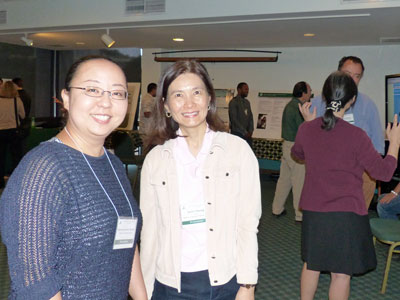
The Communication Department’s undergraduate curriculum is currently guided by seven SLOs (Student Learning Outcomes), which are demonstrable skills or abilities that students are expected to possess before the conferral of a bachelor’s degree. We, with our poster presentation, propose an additional SLO in civic engagement. Civic engagement has not been a formally assessed part of the department’s curriculum in the past, but a recent internal evaluation has revealed it to be an important aspect of our faculty’s teaching. A department-wide curriculum change to formally include this area would, therefore, pose no undo imposition on faculty independence. The students, more importantly, would benefit from new competencies and gain an awareness of issues of public concern that are essential to sound democratic governance.
The SLO framework, by design, promotes effective learning through the application of a cohesive curriculum. Put simply, each class serves to advance a common educational aim or aims. Our proposed SLO—and its accompanying curriculum map—functions no differently. The assessment of student portfolios was directed by a rubric endorsed by the Association of American Colleges and Universities, but other assessment tools may be used in its place. In addition to advocating an official position on the teaching of civic engagement, our poster project is intended to foster faculty discussion on enhancing the Communication Department’s curriculum. By Hanae Kurihara Kramer and Jenifer Sunrise Winter
Recommended Citation:
Kramer, H.K. and Winter, J.S. (2014, April). Encouraging Civic Engagement Among Undergraduates. Poster session presented at the Assessment for Curricular Improvement Poster Exhibit at the University of Hawai‘i at Mānoa, Honolulu, HI.
